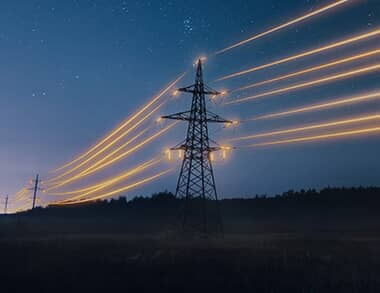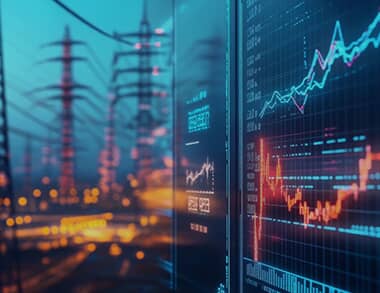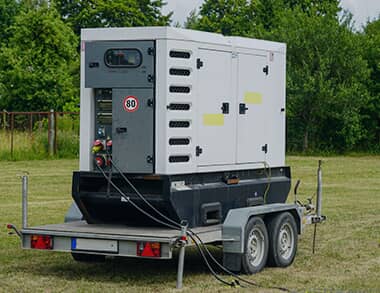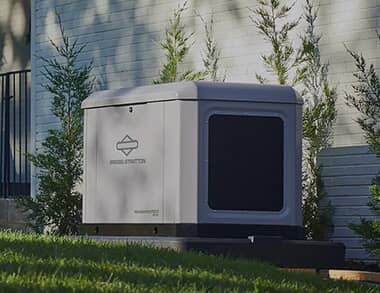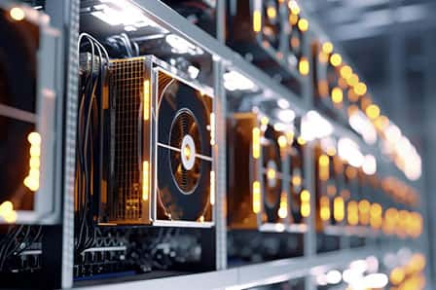Powering the Telecommunications Industry

The telecommunications industry is no longer a novelty or something reserved for the wealthy and well-connected. It has become an indispensable part of modern life, and a backbone of our civilization as we know it. Telecommunications are the backbone of virtually every modern business endeavor and are a driving force behind some of our most critical infrastructure such as the hospital system, banking, aviation safety, and emergency response teams. Without the telecommunications infrastructure, society as we know it would simply fall apart.
Backup Power is Critical
Backup power is critical to the telecommunications industry. When these services go down, even for a couple of hours, the result can easily be tens of thousands of dollars in economic damages, along with the potential for costly delays in transportation or even the loss of human lives. It is not an inconvenience; it is an emergency on par with the loss of any other piece of critical infrastructure. Backup and standby generators are necessary to keep data and information always flowing to where it needs to go.
Two types of generators are commonly used by the telecommunications industry for backup or standby power generation. They both have their pros and cons.
Natural Gas Generators
Natural gas is one of the largest producers of electricity in the United States, at a whopping 43% of all power generation. And this is for a good reason. Natural gas remains one of the cheapest and most efficient means of power generation. They are largely considered to be better for the environment than other forms of generators that run on fossil fuels, though they may not be suitable for every application. Natural gas is more efficient than gasoline and does not come with a natural shelf life – meaning that telecommunications companies will not have to regularly refill the generator in anticipation of a randomly occurring outage. However, natural gas is extremely explosive and is less efficient overall than diesel, even if it does burn cleaner.
Diesel Generators
Diesel is more reliable than natural gas, which often relies on functional gas lines to maintain consistent operation. Diesel can be stored safely with no degeneration for upwards of 24 months, and while it doesn’t burn as cleanly as natural gas, it does burn more efficiently producing more power for less fuel and associated cost. Additionally, diesel is largely considered to be safer than a natural gas generator. It is nowhere near as flammable or potentially explosive. Diesel industrial generators as a result are largely considered to be the most reliable kind when it comes to emergency backup power generation for the telecommunications industry. However, they should be placed with care. They are largely considered to be sensitive to the elements, and in a very wet environment (such as an area prone to hurricanes or heavy rains), run the risk of “wet stacking”, or when the fuel enters unburned into the exhaust system as a result of low temperatures. This can lead to reduced efficiency or even damage to the generator.
Are you looking for a generator for your telecommunications company? We here at GenTech can help. Our power generation specialists have decades of experience and can help you to take every relevant factor into account when selecting the perfect generator for your needs. Contact us today for a consultation!
Backup Power is Critical
Backup power is critical to the telecommunications industry. When these services go down, even for a couple of hours, the result can easily be tens of thousands of dollars in economic damages, along with the potential for costly delays in transportation or even the loss of human lives. It is not an inconvenience; it is an emergency on par with the loss of any other piece of critical infrastructure. Backup and standby generators are necessary to keep data and information always flowing to where it needs to go.
Two types of generators are commonly used by the telecommunications industry for backup or standby power generation. They both have their pros and cons.
Natural Gas Generators
Natural gas is one of the largest producers of electricity in the United States, at a whopping 43% of all power generation. And this is for a good reason. Natural gas remains one of the cheapest and most efficient means of power generation. They are largely considered to be better for the environment than other forms of generators that run on fossil fuels, though they may not be suitable for every application. Natural gas is more efficient than gasoline and does not come with a natural shelf life – meaning that telecommunications companies will not have to regularly refill the generator in anticipation of a randomly occurring outage. However, natural gas is extremely explosive and is less efficient overall than diesel, even if it does burn cleaner.
Diesel Generators
Diesel is more reliable than natural gas, which often relies on functional gas lines to maintain consistent operation. Diesel can be stored safely with no degeneration for upwards of 24 months, and while it doesn’t burn as cleanly as natural gas, it does burn more efficiently producing more power for less fuel and associated cost. Additionally, diesel is largely considered to be safer than a natural gas generator. It is nowhere near as flammable or potentially explosive. Diesel industrial generators as a result are largely considered to be the most reliable kind when it comes to emergency backup power generation for the telecommunications industry. However, they should be placed with care. They are largely considered to be sensitive to the elements, and in a very wet environment (such as an area prone to hurricanes or heavy rains), run the risk of “wet stacking”, or when the fuel enters unburned into the exhaust system as a result of low temperatures. This can lead to reduced efficiency or even damage to the generator.
Are you looking for a generator for your telecommunications company? We here at GenTech can help. Our power generation specialists have decades of experience and can help you to take every relevant factor into account when selecting the perfect generator for your needs. Contact us today for a consultation!
Topics:
From Insights to Power: Let’s Talk Solutions
Whether you need emergency power, maintenance, or expert guidance on your generator system, Gen-Tech has you covered. Our experienced team provides industry-leading service to keep your power running when it matters most. Call (800) 625-8324 to discuss your power generation needs today!
Contact Us
